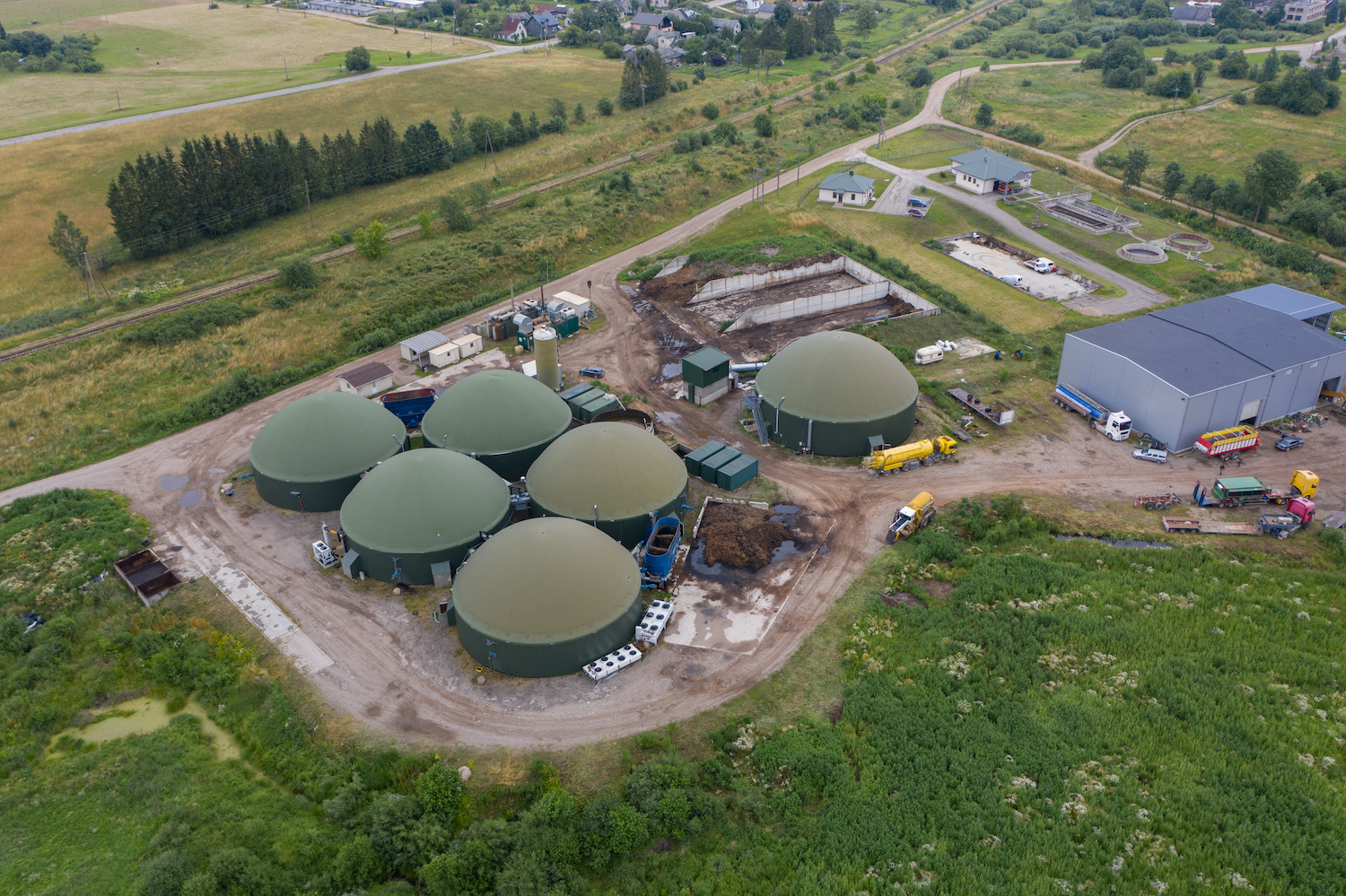Is biomethane sustainable?
How sustainable is biomethane?
In the following, we examine whether biomethane is sustainable and which arguments speak for and/or against it. Sustainability is an important criterion for biomethane or BIO-LNG as well as BIO-CNGn. Here you will learn relevant points and criteria for defining the sustainability of biomethane.
Biomethane is a promising energy carrier that offers a sustainable alternative to conventional fossil fuels. It is obtained by fermenting organic materials such as biomass or sewage sludge. This method enables the conversion of waste products into a renewable energy source.
A key advantage of biomethane is its low carbon footprint. During the production and combustion of biomethane, only the CO2 that was previously absorbed by plants during photosynthesis is released. This closes the carbon cycle and produces no additional greenhouse gas emissions. Compared to conventional fossil fuels, biomethane thus contributes to reducing global warming.
Biomethane is a sustainable alternative to fossil fuels
Another advantage of biomethane is its versatility. It can be used as a renewable fuel for vehicles and offers a climate-friendly alternative to gasoline or diesel. Biomethane can also be fed into the natural gas grid and thus contribute to decentralized energy supply. In addition, it can be used to generate heat and electricity, providing an environmentally friendly alternative to conventional heating and power plants.
The production of biomethane is also associated with positive effects for agriculture. By fermenting biomass or animal manure, agricultural waste can be put to good use, leading to a reduction in environmental pollution. At the same time, the resulting digestate can be used as a natural fertilizer, which increases soil fertility and reduces the need for synthetic fertilizers.
Overall, biomethane contributes to sustainable development as it is based on renewable feedstocks, has a closed carbon cycle, and offers various applications. It supports the transition to a low-carbon economy and can help reduce dependence on fossil fuels. By promoting biomethane production, we can make our energy supply more efficient and environmentally friendly.
Justifications for the sustainability of biomethane
-
Renewable energy source: Biomethane is produced from organic materials such as biomass, agricultural waste, sewage sludge and other biological waste. Since these materials are constantly renewable or available in sufficient quantities, biomethane can be produced continuously, making it a renewable energy source.
-
Greenhouse gas reduction: The combustion of biomethane produces fewer greenhouse gases compared to fossil fuels such as coal, oil and natural gas. During the production of biomethane, methane is captured and captured before it can escape into the atmosphere. Methane is a very potent greenhouse gas, and using it as a fuel reduces its release into the atmosphere.
-
Waste utilization: Biomethane can be produced from various organic wastes that would otherwise be landfilled or incinerated. Using these wastes for biomethane production reduces their volume while creating a valuable energy resource.
-
Decentralized energy supply: Biomethane can be produced locally, resulting in a decentralized energy supply. This means that the energy is produced where it is needed, reducing the need for long transport routes and associated energy losses.
-
Flexibility of use: Biomethane can be used in various areas, such as electricity generation, heat supply, and as a fuel for vehicles. This versatility makes biomethane a practical option for sustainable energy supply in various sectors.
-
Supporting agriculture: The use of biomethane can be beneficial for agriculture as it creates an additional source of income. Farmers can produce biomethane from animal waste or energy crops and either use it on site or feed it into the grid to generate additional income.
-
Technological progress: The development of biomethane as an energy source has led to the further development of technologies and processes that enable more efficient and environmentally friendly production methods. This technological progress can also be transferred to other areas of renewable energy production.
It is important to note that the sustainability of biomethane also depends on the type of biomass and the production methods. Sustainable biomethane production requires careful selection of feedstocks to ensure that there is no negative impact on the environment or food production.
More articles about biomethane

How is boimethane produced?
We explain the manufacturing process and the possibilities

What is biomethane?
What exactly biomethane is and how it can be used, you can find out here

